第50章
"He did not write with ease, and was apt to invert his sentences both in writing and speaking, putting the qualifying clause before it was clear what it was to qualify. He corrected a great deal, and was eager to express himself as well as he possibly could."Perhaps the commonest corrections needed were of obscurities due to the omission of a necessary link in the reasoning, something which he had evidently omitted through familiarity with the subject. Not that there was any fault in the sequence of the thoughts, but that from familiarity with his argument he did not notice when the words failed to reproduce his thought. He also frequently put too much matter into one sentence, so that it had to be cut up into two.
On the whole, I think the pains which my father took over the literary part of the work was very remarkable. He often laughed or grumbled at himself for the difficulty which he found in writing English, saying, for instance, that if a bad arrangement of a sentence was possible, he should be sure to adopt it. He once got much amusement and satisfaction out of the difficulty which one of the family found in writing a short circular. He had the pleasure of correcting and laughing at obscurities, involved sentences, and other defects, and thus took his revenge for all the criticism he had himself to bear with. He used to quote with astonishment Miss Martineau's advice to young authors, to write straight off and send the MS. to the printer without correction. But in some cases he acted in a somewhat similar manner. When a sentence got hopelessly involved, he would ask himself, "now what DO you want to say?" and his answer written down, would often disentangle the confusion.
His style has been much praised; on the other hand, at least one good judge has remarked to me that it is not a good style. It is, above all things, direct and clear; and it is characteristic of himself in its simplicity, bordering on naivete, and in its absence of pretence. He had the strongest disbelief in the common idea that a classical scholar must write good English; indeed, he thought that the contrary was the case. In writing, he sometimes showed the same tendency to strong expressions as he did in conversation. Thus in the 'Origin,' page 440, there is a description of a larval cirripede, "with six pairs of beautifully constructed natatory legs, a pair of magnificent compound eyes, and extremely complex antennae." We used to laugh at him for this sentence, which we compared to an advertisement. This tendency to give himself up to the enthusiastic turn of his thought, without fear of being ludicrous, appears elsewhere in his writings.
His courteous and conciliatory tone towards his reader is remarkable, and it must be partly this quality which revealed his personal sweetness of character to so many who had never seen him. I have always felt it to be a curious fact, that he who had altered the face of Biological Science, and is in this respect the chief of the moderns, should have written and worked in so essentially a non-modern spirit and manner. In reading his books one is reminded of the older naturalists rather than of the modern school of writers. He was a Naturalist in the old sense of the word, that is, a man who works at many branches of the science, not merely a specialist in one.
Thus it is, that, though he founded whole new divisions of special subjects--such as the fertilisation of flowers, insectivorous plants, dimorphism, etc.--yet even in treating these very subjects he does not strike the reader as a specialist. The reader feels like a friend who is being talked to by a courteous gentleman, not like a pupil being lectured by a professor. The tone of such a book as the 'Origin' is charming, and almost pathetic; it is the tone of a man who, convinced of the truth of his own views, hardly expects to convince others; it is just the reverse of the style of a fanatic, who wants to force people to believe. The reader is never scorned for any amount of doubt which he may be imagined to feel, and his scepticism is treated with patient respect. A sceptical reader, or perhaps even an unreasonable reader, seems to have been generally present to his thoughts. It was in consequence of this feeling, perhaps, that he took much trouble over points which he imagined would strike the reader, or save him trouble, and so tempt him to read.
For the same reason he took much interest in the illustrations of his books, and I think rated rather too highly their value. The illustrations for his earlier books were drawn by professional artists. This was the case in 'Animals and Plants,' the 'Descent of Man,' and the 'Expression of the Emotions.' On the other hand, 'Climbing Plants,' 'Insectivorous Plants,' the 'Movements of Plants,' and 'Forms of Flowers,' were, to a large extent, illustrated by some of his children--my brother George having drawn by far the most. It was delightful to draw for him, as he was enthusiastic in his praise of very moderate performances. I remember well his charming manner of receiving the drawings of one of his daughters-in-law, and how he would finish his words of praise by saying, "Tell A--, Michael Angelo is nothing to it." Though he praised so generously, he always looked closely at the drawing, and easily detected mistakes or carelessness.